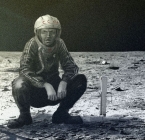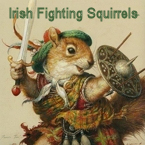Chickenboy
Posts: 24520
Joined: 6/29/2002
From: San Antonio, TX
Status: offline

|
quote:
ORIGINAL: warspite1
quote:
ORIGINAL: Simulacra53
quote:
ORIGINAL: warspite1
Bottom line is this; the Japanese started the Pacific War – remember they had a choice - and, with the greatest respect to those from the Commonwealth, the USSR, China and Holland that fought the Japanese, it was the USA that won it – regardless of what actually finally decided the Japanese to drop their weapons.
It was a poor choice in terms of diplomacy.
warspite1
I think we'll have to agree to disagree there. I always find the events leading up to the war in Europe and the Pacific to be interesting from the point of view of "dammed if you do and dammed if you don't".
So Chamberlain and Daladier get blamed for not going in hard on Germany..... while Roosevelt gets blamed for going in hard on Japan..... right, well that's fair.
Odd that both get criticised - often by the same people - for doing the opposites. (Not suggesting you do, I am not referring to you specifically here).
The British and French are blamed because, apparently, they should have told Hitler in 1938 that you either back off from Czechoslovakia or we will declare war - so plunging Europe into another war that may or may not have turned out every bit as bad as WWII actually proved to be. Because let's face it we know from everything that happened that Hitler could not walk away, he could not lose face.
But when the US gave Japan the same choice - back out of China or we cut off oil (effectively giving them the choice of war of lose face) the US were wrong despite doing what the British and French get pilloried for not doing.....?
So what should Roosevelt have done? It's 1941, all considered military opinion says Germany are about to kick Stalin out of the war, the Germans will then have control of Europe - the oil of the Caucasus, the wheat from the Ukraine, the minerals and resources from the rest of the country. Britain, North Africa and the Middle East will be next in the firing line. Spain and Turkey suddenly feel emboldened. The US are running out of Allies. Seriously, what was FDR supposed to do? Allow the Japanese to continue free reign in China?
Poor diplomacy? No. I don't think Roosevelt had much choice.
Much of the American decision to force the Japanese hand was to keep China in the war. Without Japanese troops being occupied by the Chinese, there was grave concern (and ample evidence) that Japan would coordinate efforts with Germany and turn north into Siberia and Eastern Russia. Such a move, at the ebb of Soviet strength (late 1941-early 1942), would have surely impacted the Soviet ability wage war against Nazi Germany as well as Japan.
In order to keep Germany at bay, then, the Chinese needed to stay in the war. That was the predominant thinking just prior to December 1941. Lightening up on the request / demand that the Japanese quit the Sino campaign *couldn't* happen, as it would have been detrimental to the Allied cause. The Japanese would not / could not have accepted this condition anyways, as many months of fruitless diplomacy demonstrated.
Ultimately, it was more of a question of two mutually unacceptable world views colliding. Not poor diplomacy on the American side. It was pre-ordained.
_____________________________

|
 Printable Version
Printable Version















 Works for me CB.
Works for me CB. 

 New Messages
New Messages No New Messages
No New Messages Hot Topic w/ New Messages
Hot Topic w/ New Messages Hot Topic w/o New Messages
Hot Topic w/o New Messages Locked w/ New Messages
Locked w/ New Messages Locked w/o New Messages
Locked w/o New Messages Post New Thread
Post New Thread